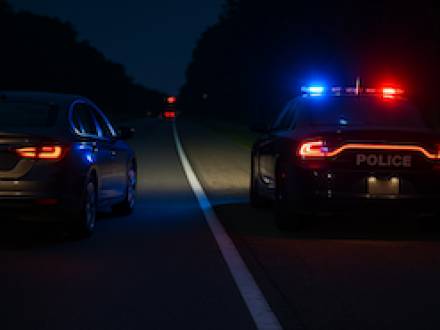Understanding Scott's Law Violations in Illinois: Penalties and Defenses in 2025
 Scott's Law, also known as Illinois' Move Over Law, is designed to protect emergency responders on the roadside, but violations can lead to significant fines, license suspensions, and even criminal charges. As a Joliet criminal defense attorney and former Will County prosecutor with over 20 years of criminal law experience, I've defended numerous clients in Will County against these tickets, which often arise during traffic stops or accidents involving police, fire, or tow vehicles. Under 625 ILCS 5/11-907(c), drivers must slow down and change lanes when approaching stationary emergency vehicles with flashing lights—if you fail to do so, you could face escalating penalties, especially if causing injury or damage. In 2025, with recent legislative updates like HB3601 increasing fines and enforcement, understanding the law is crucial to avoid long-term impacts on your driving privileges, insurance rates, and criminal record, particularly if tied to DUI or reckless driving cases.
Scott's Law, also known as Illinois' Move Over Law, is designed to protect emergency responders on the roadside, but violations can lead to significant fines, license suspensions, and even criminal charges. As a Joliet criminal defense attorney and former Will County prosecutor with over 20 years of criminal law experience, I've defended numerous clients in Will County against these tickets, which often arise during traffic stops or accidents involving police, fire, or tow vehicles. Under 625 ILCS 5/11-907(c), drivers must slow down and change lanes when approaching stationary emergency vehicles with flashing lights—if you fail to do so, you could face escalating penalties, especially if causing injury or damage. In 2025, with recent legislative updates like HB3601 increasing fines and enforcement, understanding the law is crucial to avoid long-term impacts on your driving privileges, insurance rates, and criminal record, particularly if tied to DUI or reckless driving cases.
What is Scott's Law and When Does It Apply?
Scott's Law requires motorists to yield the right-of-way by moving over one lane (if safe) and reducing speed when passing emergency vehicles stopped on the shoulder with hazard lights activated. This includes police cars, ambulances, fire trucks, tow trucks, and highway maintenance vehicles. Violations typically occur due to distraction, speeding, or failure to notice, but in Will County—where busy highways like I-80 and I-55 see frequent enforcement—tickets are common. If the violation results in property damage, injury, or death, it can elevate from a petty offense to a misdemeanor or felony, linking to broader criminal defense needs like aggravated battery or vehicular homicide if harm occurs.
Penalties for Scott's Law Violations in 2025
Penalties have toughened in 2025 under new legislation. A first-time violation carries fines from $350 to $15,000, up from previous minimums, with mandatory court assessments and possible community service. Repeat offenses start at $750, and if damage to another vehicle occurs, it's a Class A misdemeanor with up to one year in jail. License suspensions range from 90 days to one year for property damage, 180 days to two years for injury, and a mandatory two-year revocation if death results. Aggravated cases involving DUI can lead to felony charges, permanent revocation, and civil lawsuits. In Joliet and Will County, these violations often compound with traffic points, skyrocketing insurance, and SOS reinstatement requirements, making early defense essential to mitigate outcomes.
Effective Defenses Against Scott's Law Tickets
Not every Scott's Law ticket holds up in court. Common defenses include challenging the officer's observation (e.g., poor visibility or unsafe to move over), proving compliance attempts via dashcam footage, or arguing lack of intent if distracted driving isn't proven. As a former prosecutor, I know how to suppress evidence from improper stops or negotiate reductions to non-moving violations, avoiding points and suspensions. For 2025 cases involving injury, we can contest causation or leverage procedural errors for dismissals, preserving your license and record.
Why Hire a Joliet Scott's Law Defense Attorney?
Facing a Scott's Law violation alone risks severe penalties that affect your daily life and future. At Zaremba Law Office, we specialize in traffic defense, DUI-related violations, and driver's license reinstatement in Will County, helping clients avoid the full weight of these charges. Don't let a ticket escalate—contact Jack L. Zaremba for a free consultation at contact page or call (815) 740-4025. Protect your rights today.

















